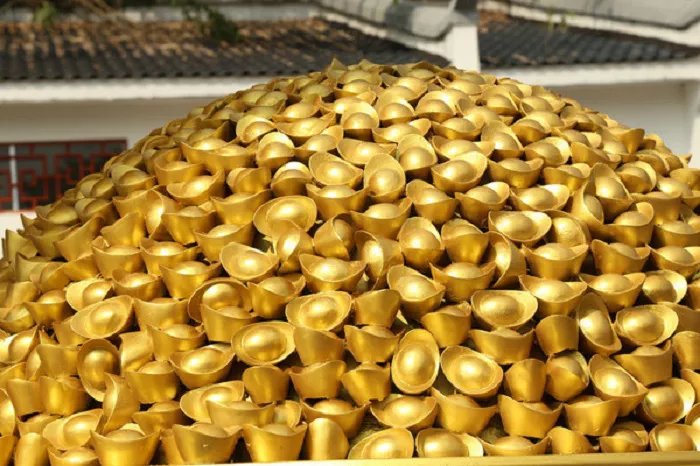As gold prices surge globally, two of the world’s key producers—Peru and Ghana—are adopting sharply contrasting strategies to deal with the complex intersection of gold mining, national interest, and security.
Peru Suspends Mining Operations Following Fatal Attack
Peruvian President Dina Boluarte on Monday ordered a 30-day suspension of mining in the country’s northern Pataz province following the brutal massacre of 13 security personnel working at a gold mine operated by Compañía Minera Poderosa.
The victims, employees of a subcontractor, were found dead in a mine shaft on Sunday, after reportedly being held hostage for more than a week. The government blamed criminal gangs tied to illegal mining, which it described as operating with “urban terrorist” methods.
“The armed forces will take control of the area where Poderosa operates,” Boluarte announced. She added that illegal gold mining now generates more revenue than drug trafficking in some regions.
In response to the violence, Peru will also impose a nighttime curfew in Pataz and establish a new military base in the region, located about 900 kilometers from Lima. Though under a state of emergency for more than two years, Pataz has seen rising violence, with Poderosa reporting 39 fatalities among its workers since 2022.
Despite the sweeping announcement, key details remain unclear. Mining and Energy Minister Jorge Montoro clarified that the 30-day suspension currently targets informal miners and could be extended.
Ghana Seeks Greater Control of Gold Revenues Amid Bull Market
While Peru confronts escalating insecurity, Ghana—Africa’s top gold producer—is pushing ahead with reforms to reclaim control over its gold sector as prices soar to near-record highs.
The newly established Ghana Gold Board (GoldBod) has signed purchase agreements with nine domestic mining companies, requiring them to sell 20% of their export-bound gold to the government in doré bar form. The Central Bank will buy the gold at a 1% discount to the global spot price, paying in Ghanaian cedis.
This move comes as part of a broader strategy to boost foreign reserves, curb smuggling, and increase state revenue. The Central Bank has ramped up its gold holdings from 8.7 metric tons in 2022 to 30.8 tons in early 2025.
Ghana is also targeting its small-scale mining sector, which accounts for 35% of national output and employs over 1 million people. Under the new regime, GoldBod becomes the sole authority to buy, sell, assay, and export artisanal gold. All previously issued trading licenses have been revoked, and dealers must reapply under a new licensing framework.
The reforms mark the most sweeping transformation in Ghana’s gold sector in decades. But while local content is being prioritised, foreign dealers must now apply directly to GoldBod, raising concerns about protectionism.
“We believe this is fair and adequate for any serious applicant,” said acting CEO Sammy Gyamfi, following a three-week extension of the reapplication deadline to May 21.
Investor Sentiment and Risk of Overreach
Experts caution that the dual role of GoldBod—as both regulator and commercial actor—poses a governance challenge. Analysts at Dowuona & Company warn of “inherent tensions” and potential disruptions if reforms are not implemented with transparency and consistency.
Dr. Patrick Stephenson, director at the Fiscal Governance and Policy Institute, warned that settling gold purchases in local currency could deter foreign investment due to currency risk. “There is a need to strike a balance between reform and investor confidence,” he said.
Still, Ghana’s gamble comes amid favorable conditions. Gold prices have surged more than 25% this year, now trading at $3,258 per troy ounce, nearing a historical high. In 2024 alone, Ghana earned $11.6 billion in gold exports—up 52.6% year-on-year—and gold contributed to 57% of total export revenue, helping double the country’s trade surplus.
Yet economists like Anang Tawiah warn against overreliance on commodity exports. “Despite years of talk about diversification, Ghana remains heavily dependent on gold, oil, and cocoa, which made up 78.2% of exports in 2024,” he said.
A Tale of Two Strategies
Peru’s emergency measures reflect a country grappling with violence linked to illegal mining, while Ghana is leveraging a gold boom to assert regulatory control and maximise national profit. But both face a shared challenge: how to manage risk in a high-stakes industry where security, sovereignty, and investment hang in a delicate balance.
Related topics:
- India Surpasses China in Gold Purchases, Buying 51% More in Three Months
- Qilu Bank Enhances Support for Small Businesses with Innovative Financial Tools
- Bitcoin Poised for a Surge Amid Gold’s Delivery Delays, Expert Claims


